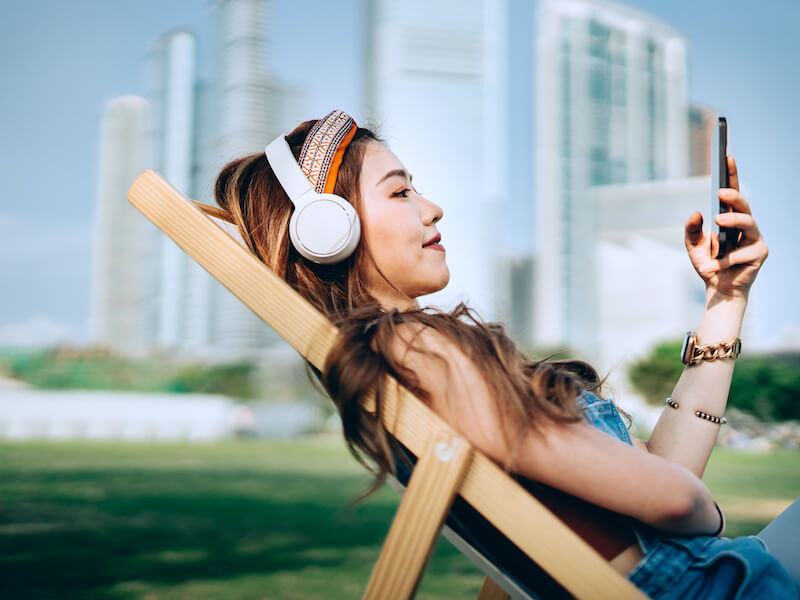
Aiden enjoys music. He listens to Spotify while working, switches to Pandora while jogging, and he has a playlist for everything: cardio, cooking, video games, you name it. His headphones are just about always on, his life a completely soundtracked event. But the exact thing that Aiden enjoys, the loud, immersive music, could be contributing to irreversible damage to his hearing.
As far as your ears are concerned, there are healthy ways to listen to music and dangerous ways to listen to music. But the more hazardous listening choice is often the one most of us use.
How can hearing loss be caused by listening to music?
Your ability to hear can be damaged over time by exposure to loud noise. We’re accustomed to thinking of hearing loss as an issue caused by aging, but more and more research reveals that it’s really the accumulation of noise-induced damage that is the problem here and not anything inherent in the aging process.
Younger ears that are still developing are, as it turns out, more vulnerable to noise-related damage. And yet, the long-term damage from high volume is more likely to be dismissed by young adults. So there’s an epidemic of younger individuals with hearing loss thanks, in part, to high volume headphone use.
Is there a safe way to listen to music?
Unlimited max volume is clearly the “hazardous” way to enjoy music. But there is a safer way to listen to your tunes, and it normally involves turning the volume down. Here are a couple of basic guidelines:
- For adults: Keep the volume at no more than 80dB and for no more than 40 hours per week..
- For teens and young children: 40 hours is still okay but lower the volume to 75dB.
Forty hours per week is about five hours and forty minutes per day. Though that may seem like a while, it can seem to pass rather quickly. But we’re conditioned to keep track of time our entire lives so most of us are pretty good at it.
Monitoring volume is a little less intuitive. Volume isn’t gauged in decibels on most smart devices like TVs, computers, and smartphones. It’s measured on some arbitrary scale. It might be 1-100. But maybe it’s 1-16. You might not have any idea how close to max volume you are or even what max volume on your device is.
How can you listen to tunes while keeping track of your volume?
It’s not really easy to tell how loud 80 decibels is, but luckily there are some non-intrusive ways to know how loud the volume is. It’s even more difficult to determine the difference between 80 and 75dB.
That’s why it’s greatly recommended you use one of numerous cost-free noise monitoring apps. These apps, widely available for both iPhone and Android devices, will provide you with8 real-time readouts on the noises around you. In this way, you can make real-time alterations while monitoring your real dB level. Or, while listening to music, you can also modify your settings in your smartphone which will efficiently let you know that your volume is too high.
The volume of a garbage disposal
Your garbage disposal or dishwasher is generally around 80 decibels. So, it’s loud, but it’s not that loud. Your ears will start to take damage at volumes above this threshold so it’s a significant observation.
So pay close attention and try to stay away from noise above this volume. And minimize your exposure if you do listen to music over 80dB. Maybe minimize loud listening to a song rather than an album.
Listening to music at a higher volume can and will cause you to have hearing problems over the long run. You can develop hearing loss and tinnitus. The more you can be cognizant of when your ears are going into the danger zone, the more educated your decision-making will be. And safer listening will hopefully be part of those decisions.
Contact us if you still have questions about the safety of your ears.
